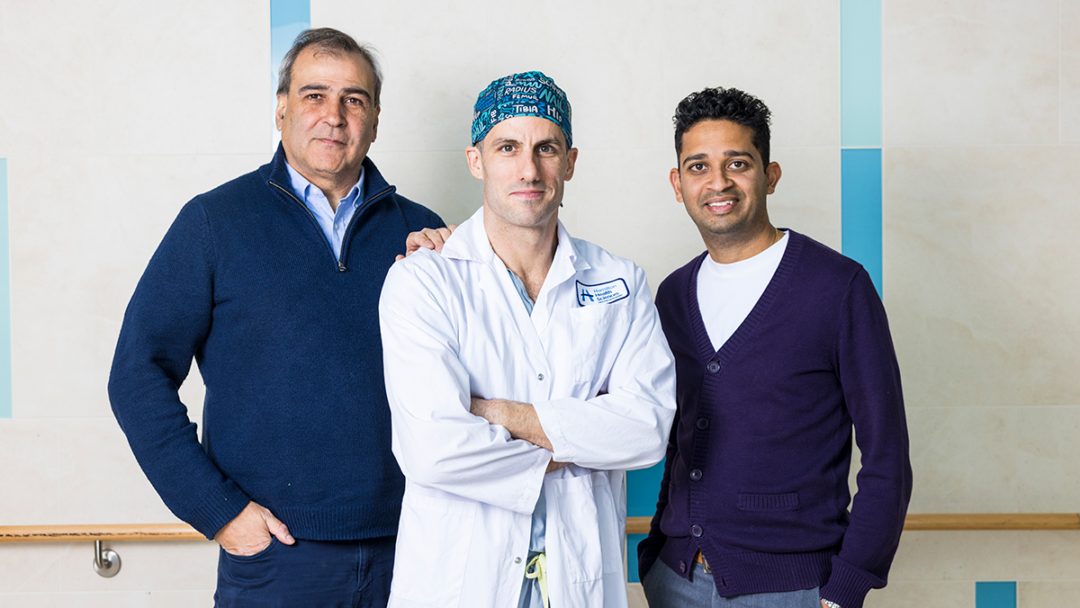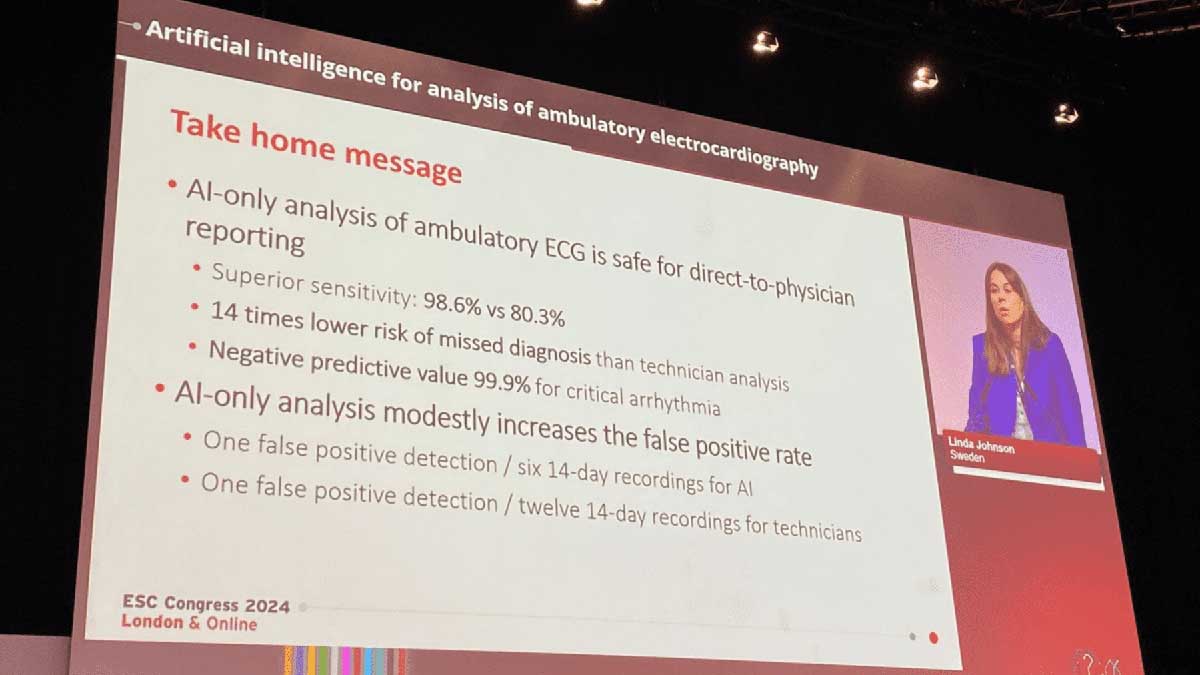McMaster researchers lead landmark trial to prevent infections after hip, knee surgeries

Infection after knee or hip surgery is rare in Canada, but when it does happen, it can be costly, dangerous and incredibly painful. Now, a new landmark trial from McMaster University researchers will test a simple, cost-effective intervention that could reduce the risks of infection even further.
Led by Thomas Wood, associate professor with McMaster University’s Department of Surgery, the Prospective Randomized Evaluation of Emerging Novel Treatments for Infection Prophylaxis in Total Joint Replacement (PREVENT-iT) trial will involve 21,000 patients undergoing joint replacement surgery over the next three years. According to Wood, this is the largest orthopedic trial to ever be funded in Canada.
“Infection is the worst thing that can happen to my patients. Until now, nobody has studied infection the way we are with this trial,” Wood says. “What I want to do is change the field of surgery. My hope is that this trial will lead to better patient outcomes and change how surgeons conduct joint replacement surgeries.”
The trial will take place across 12 locations in Canada, with plans for the trial to take place at sites in Germany, Spain and the United Kingdom. The Canadian Institutes of Health Research (CIHR) is providing $2.6 million to fund the trial.
Using irrigation and antibiotics
The PREVENT-iT trial has been several years in the making, with Wood pursuing the research since joining McMaster in 2018.
Through a pilot study, the researchers came up with a strategy they believe will reduce the risks of infection. It’s a two-pronged approach that will see various types of irrigation fluid used to clean the surgical site and the application of antibiotic powder directly into the deep hip and knee areas.
Wood says if proven successful, the interventions could result in over US$1.8 billion in health-care savings in North America alone.
“It’s a cost-effective strategy. It’s not going to cripple any health-care systems. It’s also a very simple strategy to implement so if we can show that these two interventions either together or alone can move the needle it may result in some pretty profound impact for this patient population that gets infections.”
Infections spawned through joint replacement surgery is quite low, according to Wood, occurring in about one per cent of surgeries. But in developing countries, where sterility issues might occur, the chances of infection jump closer to five per cent.
“These interventions may actually have an even bigger effect in developing nations and have a more profound effect in those hospital settings.”
Complications from an infection can be severe and multifaceted. For example, a person being treated for infection could require multiple surgeries and lengthy hospitals stays. In other cases, it involves several rounds of antibiotics and in extreme cases, amputation might be required.
A big moment for the department
Standing next to Wood on this venture is Sameer Parpia, associate professor and biostatistician with McMaster’s Department of Oncology, and Mohit Bhandari, distinguished university professor and chair of the Department of Surgery.
“This is a big moment for the Department of Surgery to get this grant and to have this landmark study,” Wood says. “This is the largest orthopedic trial ever done at McMaster.”
Bhandari praised Wood for leading the trial and for his unwavering commitment to bettering the outcomes of people undergoing joint replacement surgery.
“It’s rather unprecedented for a faculty member to have his first funded trial from CIHR be the largest undertaking in the history of orthopaedic surgery —I believe its success is driven by Dr. Wood’s relentless commitment and expertise, and a strong leadership team with prior success in the design and conduct of large, randomized trials,” Bhandari says.
“This trial further exemplifies McMaster Surgery’s legacy of global high-impact research.”
Dept. Surgery, ResearchRelated News
News Listing

Population Health Research Institute (PHRI) ➚
AI could safely replace human analysis of ambulatory ECG
Research
24 hours ago

Daily News ➚
McMaster community members awarded King Charles III Coronation Medals
Awards & Recognition, Dept. Med, Dept. Psych, Dept. Surgery, Faculty & Staff
6 days ago

